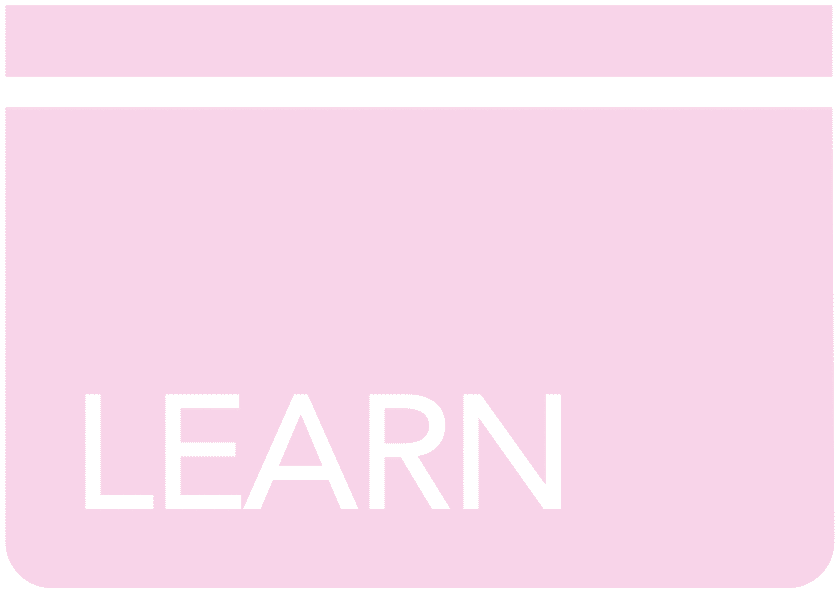
A SCHOOL FOR TOMORROW
The Way
What is The Way? The Way is a research-driven and evidence-based approach to building a School for tomorrow. As learners ask and answer fundamental questions about who they are, where they fit in, how they can best serve others, and what their calling might be, we help them to build the adaptive expertise and self-efficacy to grow in the character and competencies of learning, living, leading and work that they need to thrive in our world and experience success on The Pathway to Excellence, a model of human development with purpose at its heart.

SEEING THE WHOLE PICTURE – THE RATIONALE FOR THE WAY
When we educate students, we take them on a journey of discovery, encounter and experience. We are helping them to find out who they are and how they might live a life that is worthwhile and purposeful. We help them to develop aspirations and reach for them through the exercise of meaningful voice and agency that is meaningful. We help them to develop a sense of belonging, to strive to reach their potential, to do what is good and right in the world. We need to go beyond the immediate activity in which we are engaged and to consider instead the fundamental purpose of an education. We are playing our part in a broader process of helping students to become by helping them to develop character and competency that requires them to know, to do, to be, and to learn simultaneously.
The Way is a research-driven and evidence-based approach to building a fit for purpose 21C school, a School for tomorrow. It helps students to grow in the character and competencies of learning, living, leading and work that they need to thrive in our world by equipping, empowering, and enabling them to acquire the adaptive expertise and self-efficacy to experience success – progress and wellness on their journey of discovery. We call this journey The Pathway To Excellence.
Character is the way we live life. Do we belong? Are we fulfilling our potential? Are we doing what is good and right? These are powerful questions we ask about our civic, performance and moral character. Sometimes to answer them we search deep and discover an inner sense of who we are, and who we may become; this is our mark as a person. Other times, we try to fulfil the expectations of others; this is our measure as a person. And so, through the course of our lives, as we express the civic character of belonging, the performance character of fulfilling potential and the moral character of doing what is good and right, we wrestle. We wrestle with both leaving a mark and measuring up. This is how we form character. This is how we show who we have been, and who we are becoming.
“In our collective and individual work in schools, we are all engaged in the important role of providing our students with an education for character and competency. Always central to the mission of schools, character education has gained new urgency in recent years. Learning how to navigate change and complexity with a strong moral compass, building character strengths such as perseverance and grit, and understanding one’s self and purpose for others are seen across societies internationally as being fundamental for student wellbeing as they make the journey to adulthood.”
Dr Philip SA Cummins and Bradley Adams
Thriving means human beings applying their character and competency to experience success in a world that needs them to:
- Have the integrity to lead meaningful lives as good people.
- Have the ability to manage complexity with authenticity as future builders.
- Grow and transform themselves as continuous learners and unlearners.
- Provide sustainable direction to the world as solution architects.
- Balance the local, the regional, and the global with perspective as responsible citizens.
- Work well in relationship with others, to bring success and fulfilment for all of us as team creators.
Adaptive expertise means human beings growing in character and competencies and using these to solve known and new problems. It is, in essence, our commitment to growth. Self-efficacy means human beings organising themselves and their learning, living, leadership and work to optimise their character and competencies so that they can thrive in their world. It is our capacity to be the best version of ourselves that we can be. Success means progress and wellness on our pathways to excellence. Progress is defined by the growth, motivation, engagement, achievement, and qualification of a person in each of their competencies. These concepts are connected intimately with each other; inherent in this connectedness is the measurement of a person’s progress according to growth in mastery of competencies, organisation of one’s life around these competencies, and a sense of thriving in the world through these competencies. Wellness is how we experience health and happiness in the world. Our wellness (or how well we feel) is influenced by our health – physical, psychological, emotional, and spiritual, our satisfaction with the lives we are leading, and the sense of purpose and connectedness we have. Our character is directly affected by our wellness; how well we are is so very important to how we live our lives and who we are becoming through all of our social relationships and educational experiences on our pathways to excellence.
LOCATING THE WAY IN OUR WORK
We have eight statements of philosophy that guide the way we do our work as educators in supporting The Pathway to Excellence:
- We are called as educators to help others to strive for excellence and to develop their character and competencies. When the character of an education is defined by, framed within, and aligned with a community’s aspirations for its graduate outcomes, then we begin to see what an education can really do. It’s more than just a series of learning activities pursued for their own sake – our research seems to show that the fundamental purpose of an excellent education should be the development of the whole character of the learner.
- Character is why we do school. The development of whole young people of character who wrestle with their own sense of who they should be (“realisation”) and what people expect of them (“replication”) in order to belong fully to their civic institutions through civic character, fulfil their potential through performance character, and live with the integrity of moral character through a set of beliefs about what is good and right is the most fundamental reason for any school to exist. It is the purpose of a School for tomorrow.
- What educators think about character matters. What teachers think and feel about character and its relationship to their educational purpose shapes and directs the development, attainment, and measurement of civic, performance, and moral character and competencies and the expression of these in a set of desired graduate outcomes in a school.
- Character is the whole work of a school. How we think about our character practice and connect this to the context, design, and experiences of character learning across all aspects of a school helps us to locate and assess our work through a coherent model of an education for character that describes how learning occurs within a community of inquiry and practice that is dedicated to using a whole school framework for education, a cascade of fundamental documents that ensures that the intentions, experience and results of schooling match the aspirations of the community for the growth, motivation, engagement, and qualifications of their children and propel the achievement of a clear set of desired graduate outcomes based on 21C civic, performance, and moral character competencies.
- Development of character and competencies relies on relationship. The quality of character and competencies in a school is largely the product of both specific learning relationships of character apprenticeship in which competency is crafted and also the way that those relationships bring together all learners in a community of inquiry and practice that is sharply focused on improving delivery of the school’s graduate outcomes.
- An education for character, competency and wellness education works best when it’s deliberate, targeted and intentional. The consistency of character, competency and wellness in a school is a reflection of a school’s willingness to embrace the need for strategic educational development that embeds 21C character and competencies into every facet of school life in a deliberate, targeted and intentional way. This requires the adoption of a strategic approach to building the right learning culture, as well as the collaborative development of a conceptual and documentary framework for education that will help a school move beyond being just intentional to becoming a School for tomorrow. in every respect.
- School leaders show the way forward. School leaders build character capital in a school community through their character labor, especially through role modelling and development of character competency; character education efficacy results from their will and their capacity to embed a shared commitment to “what we want, why we want it and how we do it”.
- A good school focuses on the whole education of the whole person – a great school assembles the ingredients of high-performance culture in delivering this education. A good school gets the fundamentals right; it becomes fit for purpose by building high standards across all aspects of school life, and embedding and sustaining these standards within the habits and routines of its daily life, all of which emanate from its desired graduate outcomes based on 21C civic, performance and moral character competencies. A fit for purpose 21C learning culture means stepping forward into a preferred future where: vision and vocabulary are shared; value propositions are agreed by the school community; the velocity, shape, and trajectory of change are designed and implemented to meet the needs of internal and external contexts. All learning journeys are formed in relationship within the values, context and culture of the school community. They are enhanced by a shared commitment to continuous learning, a flexible online and offline approach to the design, development and delivery of learning and teaching that allows all to access learning from their own location. Continuous learning does not prescribe a particular pedagogical approach but has the potential to support student- centred and student-led approaches to personalised learning progress. A great school, a School for tomorrow., identifies the "secret sauce" of aspirations, a sense of kinship, and pathways to success, and applies this to a culture of inspiration, challenge, and support. This culture fosters both the pursuit of excellence by young people of character, and the sense of belonging to and engagement in school. It keeps them in their groove and holds them to the educational purpose.
In other words, The Way helps us consistently demonstrate an increasing propensity towards inspiring, challenging, and supporting students to belong, to fulfil their potential, and to do good and right things as young people of character and competency. It is about them becoming homes for personalised, aligned and integrated journeys of student inquiry in search of meaning and the discovery of truth and relevance through aspiration, experience, agency, voice, and resource supported by a community of inquiry and practice dedicated to improved student outcomes. In other words, teaching means that we need to connect what we do (Our Practice) to the fundamental rationale at the core of our work (Our Purpose) and through our context (Our People and Our Place). The Way, therefore, goes beyond the things of school; it is about the humanity of who we are, what we do, and why we do it in a School for tomorrow.






